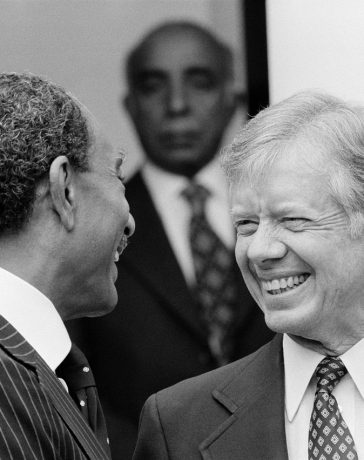Key Takeaways:
- An in-depth look into the complexities and importance of family law
- A comprehensive guide to the processes of marriage, divorce, and child custody issues
- Insights into the effects of legal decisions on children’s well-being
- The evolving nature of family law amid societal shifts
- Financial considerations within family law, including asset division and support
- How cross-border issues complicate family law matters
- The invaluable role of legal assistance in family-related matters
Embarking through family law can often be a labyrinth of emotion and complexity. This critical facet of the legal system touches people at the most intimate levels, the spaces where the heart and the law intersect. Here, we delve into the fundamental principles of family law, which serves as a stabilizing force amid the evolving topography of modern families. The dealings of family law encompass more than simply the division of marital assets or custody arrangements; they reflect and respond to the diversity of family structures in society.
When faced with the intricacies of family law, one might seek the expertise of divorce attorneys, who are adept at interpreting and guiding individuals through the convolutions of marital resolutions. This piece aims to demystify the broad-ranging domain of family law, exploring its principles and extrapolating its vital impact on individuals and society. So, let’s traverse this landscape with eyes wide open, understanding the legal threads that bind and sometimes unravel the tapestry of the family unit.

The Fundamentals of Family Law
Family law can be considered the legal soil from which the tree of familial relationships grows and flourishes or, in some cases, withers and reforms. It is a specialized area of the legal system that deals with family relationships like marriage, divorce, child custody, and more. Yet, a common misconception is that family law deals only with the dissolution of relationships. Instead, it also plays a significant role in forming and protecting family units through the legal establishment of things like paternity, adoption, and guardianship.
Myriad statutes regulate domestic relations under the vast umbrella of family law. This branch of law doesn’t function in a vacuum; it intimately affects the lives of real people. The American Bar Association notes that the far-reaching implications of familial legal matters necessitate a robust understanding of these laws, not only by those directly affected but also by society. Given its direct impact on the well-being of children and family stability, the paramount importance of this area of law cannot be overstated.
Amidst life’s turbulence, from joyous unions to distressing separations, family law provides structure and recourse, offering a semblance of order to otherwise chaotic predicaments. It’s a field marked by change and growth, demanding attention and care from those who navigate its contours.
Marriage and Divorce: The Legal Process
Marriage is often envisioned as a celebration of love and a personal commitment between parties, yet it is governed by legal stipulations that marry emotion with legality. The law sees marriage as a formal contract with all attendant rights and duties assigned to each party. Recognizing the contractual aspects of this union can lead to the consideration of prenuptial agreements, which protect individual interests and make future legal procedures like divorce more streamlined.
While every marriage begins with aspirations of permanence, it’s an unfortunate reality that not all withstand the test of time. When the marital bond dissolves, the role of divorce attorneys in Daytona Beach becomes imperative. These legal practitioners navigate the often turbulent waters of divorce proceedings, including the multifaceted discussions of custody, support, and the fair division of marital assets. Such intricate disputes highlight the necessity for competent legal counsel to mediate between complex emotional grievances and practical necessities, ensuring compliance with the law while also seeking to honor the best interests of all involved, especially children.
The Evolution of Family Law in a Changing World
Family law is not a static entity; instead, it is a legal area consistently responsive to the shifts and turns of societal change. Including same-sex marriage within the legal definition of marriage in many jurisdictions is just one example of how family law continues to evolve to recognize and protect the rights of all family configurations. Our legal system’s capacity to adapt to the fluidity of modern families is a testament to society’s broader march toward inclusion and equity.

Yet, this march is not without its challenges or detractors. Legal reforms often prompt deep discussions about the law’s impact on culture and vice versa. Legal scholars examine these questions in depth, considering the broader psychological effects of these reforms on individuals and the collective conscience. The importance of informed dialogue and educated policy-making in family law is, therefore, more crucial than ever as we strive to forge a legal system that upholds the dignity of all family structures.
Financial Aspects of Family Law
Within family law, the financial implications can be profound and far-reaching. During divorce proceedings, the distribution of shared assets and debts comes to the fore, often revealing the intertwined nature of a couple’s financial life. These assets are not merely numbers on paper; they represent lifetimes of work, investment, and shared dreams. Therefore, the fair division of property becomes a cornerstone of divorce law, aiming to untangle the financial union of the couple with justice and sensitivity.
Spousal support, or alimony, is another financial facet of family law where the objective is to prevent financial disparity following the dissolution of marriage. This form of financial assistance is intended to provide the lesser-earning spouse with economic stability and independence post-divorce. It is an acknowledgment of the shared economic contribution to the marriage and a means to ensure both parties can transition into their new separate lives with dignity.



































